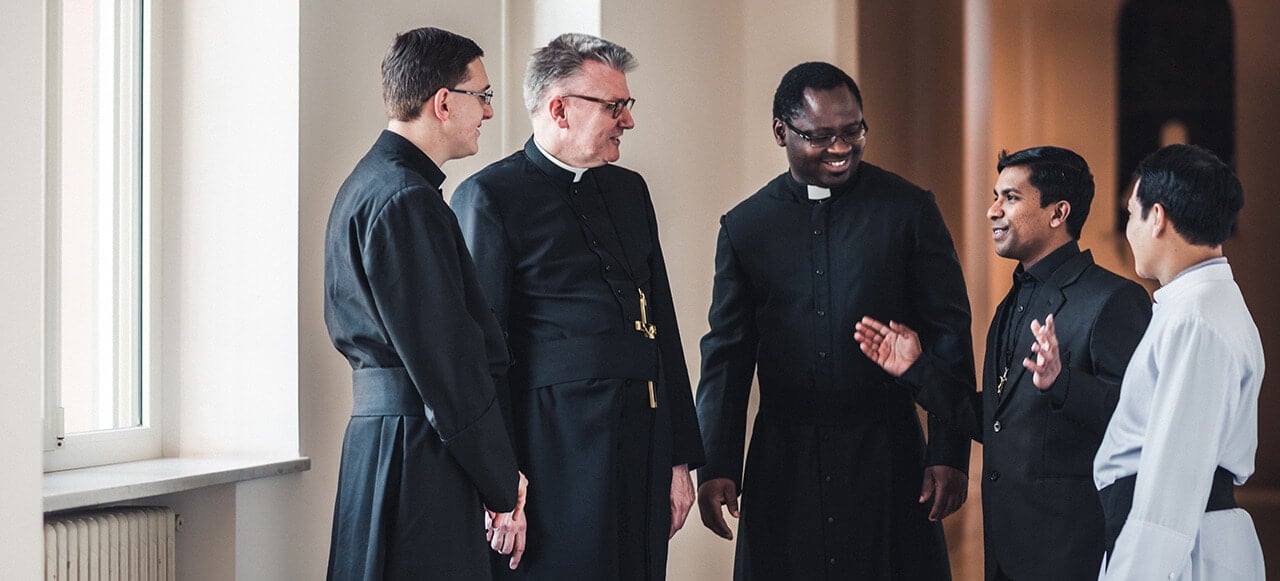Of all the Oblate Missionaries who have evangelized the Amerindians of Mackenzie, Father Bruno Roure was undoubtedly the one who experienced the most demanding solitude. It takes courage and a lot of self-denial to live all alone for fourteen years, in the midst of a tribe of Amerindians who are racially different, do not share your Faith, and have different life styles. He was the first resident missionary at Fort Rae, north of Great Slave Lake. His only Oblate companions were Brother Louis Boisramé and Bishop Isidore Clut. The first was only with him a few months, long enough to build a rudimentary house. The Bishop made short biennial visits!
Who was Father Roure?
Bruno Roure was born in La Charrière, France, on October 13, 1843. At the end of his studies at the Major Seminary of Viviers, in April 1870, he left for Canada. He was ordained to the priesthood by Bishop Clut, that same year, in Montreal. Following a year of Novitiate at Fort Providence, he professed his vows on March 19, and then undertook a missionary career that was to last forty-eight years. He died at Fort Providence on October 3, 1920.
The “Dog-rib” Tribe
At Fort Rae, Father Roure dealt mostly with a branch of the Denes called “Plats-Côtés-de-Chiens” (Dog-rib). Even though the Amerindians generally have nothing but contempt for dogs, they nevertheless consider this animal’s ribs as something noble. A pagan legend claims that this tribe owes its origin to one of these extraordinary dogs that roamed the region. While on this subject, we are reminded of Louis Veillot’s insightful suggestion. The famous French journalist, on hearing Bishop Grandin describe the legend, summarized it in his newspaper L’Univers: “The Plâts-Côtés-de Chiens are the proud descendants of a great dog, in the same manner that many of our learned scholars are humble enough to go back to a great monkey.”
During Father Roure’s time with them, these Amerindians were terribly poor. The Oblate wanted to share their life-style, accepting their poverty and their hardships. Did he suffer from hunger? He was asked this question one day. He replied: “Yes. One night, I went to bed without eating, for lack of food. I did the same on another occasion… but this time, it was because I had forgotten.”
She visibly demonstrated her sorrow
Father Roure did not lack a sense of humor. He even enjoyed sharing the time when what hair was left on his head was nearly all torn off. It was only a few days after Easter. The new converts had returned home with peaceful consciences. But one woman returned by herself to the mission. She fell at Father Roure’s feet, and, tearfully acknowledged her offence: she had grabbed by the hair a woman, in her group, whom she wanted to reprimand. Since her purpose was to explain thoroughly, she kept on adding superfluous details. As he was growing impatient, the priest suddenly interrupted her, and urged her to finish. “Finally, tell me exactly what you did to the poor woman.” “Here is what I did!” Saying these words, she grasped in her two hands all she could hold of the priest’s hair, and began to draw them to herself with all her strength. “Enough, enough! Let me go!, I understand now.” “No, you cannot understand me yet, because I held her longer than this, and I pulled harder. I want you to know everything.”

At last the priest succeeded in freeing himself from the martyrdom that the shrew was imposing upon him. “Good,” she said at last, fixing the tufts of hair that were still between her fingers, “that’s about how it went. If you had more hair, I could have made you understand better. But that alright! You now have an idea of the sorrow I feel when I think of my bad action. Bless me now, and ask God to forgive me.”
André DORVAL, OMI
